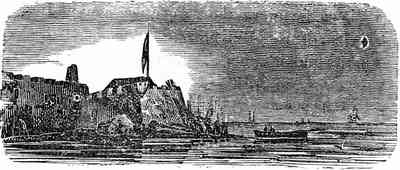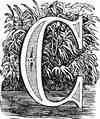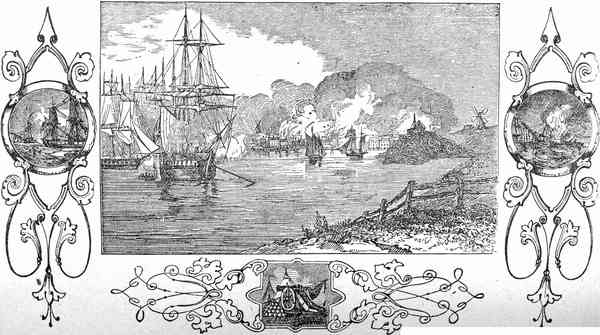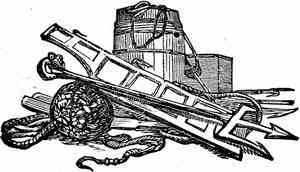Thrilling Incidents In American History
• Preface
Revolutionary War
• Opening Of The Revolution
• The Boston Massacre
• Affair of the Sloop Liberty
• Affair of the Gaspee
• The Tea Riot
• The Boston Port Bill
• The First Continental Congress-Consequent Parliamentary proceedings
• Organization of the Minute-Men
• Patrick Henry-Second Provincial Congress-First Military Enterprise
• Battles of Lexington and Concord
• Battle of Bunker's Hill
• Capture of Ticonderoga
• Second Continental Congress-Washington's Appointment
• Siege of Boston
• Incidents at the Evacuation of Boston
• Burning of Falmouth
• Arnold's Expedition to Quebec
• Siege of Quebec, and Death of Montgomery
• Scenes at Quebec during the Siege
• Expedition against Charleston
• The Declaration of Independence
• The Battle of Long Island
• Washington's Retreat through New Jersey-Capture of General Lee
• Battle of Trenton
• Battle of Princeton
• Capture of General Prescott
• Battle of Brandywine
• Battle of Germantown
• Battle of Red-Bank
• Attack on Fort Mifflin-Retirement of the Army to Valley Forge
• Battle of Bennington
• Murder of Miss M'Crea
• Battle of Stillwater
• Battle of Bemis' Heights, and Retreat of Burgoyne
• Capture of Forts Clinton and Montgomery
• Surrender of Burgoyne
• The Treaty with France
• Attack on Savannah, and Death of Pulaski
• Storming of Stony Point
• General Sullivan's Campaign against the Mohawks
• Tarleton's Quarters
• Battle of Camden, and Death of De Kalb
• Arnold's Treason
• The Loss of the Randolph
• The British Prison-Ships
• Capture of the Serapis
• Putnam's Feat at Horseneck
• Battle of Eutaw Springs
• Wayne's Charge at Green Spring
• Capture of the General Monk
• The Mutinies
• Battle of the Cowpens
• Capture of New London
• Massacre of Wyoming
• Surrender of Cornwallis
War With France
• Capture of L'Insurgente
• The Constellation and Vengeance
War With Tripoli
• Burning of the Philadelphia
• Bombardment of Tripoli
• Loss of the Intrepid
• Expedition of General Eaton
Second War With England
• Battle of Tippecanoe
• Capture of the Guerriere
• Tragical Affair of an Indian Chief
• Battle and Massacre at the River Raisin
• Captain Holmes's Expedition
• Capture of the Caledonia and Detroit
• The Wasp and Frolic
• Gallant Conduct of Lieutenant Allen at the Capture of the Macedonian
• Capture and Destruction of the Java
• Siege of Fort Meigs
• Capture of York, and Death of General Pike
• Defence of Sackett's Harbour
• Defence of Fort Stephenson
• Battle of Lake Erie
• Battle of the Thames
• Gallant Action of Commodore Chauncey under the guns of Kingston Citadel
• The Sacking of Hampton
• Capture of the Peacock
• Massacre at Fort Mimms
• Surrender of Weatherford
• Battle of Niagara
• BattIe of New Orleans
War With Mexico
• Battle of Palo Alto
• Battle of Resaca de la Palma
• Capture of Monterey
• Battle in the Streets of Monterey
• Thrilling Scenes in the Battle of Buena Vista
• Bombardment of Vera Cruz
• Battle of Cerro Gordo
• Battles of Contreras and Churubusco
• Storming of Chapultepec


BURNING OF FALMOUTH.
 ONGRESS having intimated to General Washington that an attack upon Boston was
much desired, a council of war was called (October 18), but unanimously agreed
that it was not expedient, at least for the present. On the same day Captain
Mowat destroyed a hundred and thirty-nine houses, and two hundred and
seventy-eight stores and other buildings, the far greatest and best part of the
town of Falmouth, (now Portland, Maine), in the northern part of Massachusetts.
The inhabitants, in compliance with a resolve of the provincial congress to
prevent tories carrying out their effects, gave some violent obstruction to
the loading of a mast-ship, which drew upon them the indignation of the
admiral.
ONGRESS having intimated to General Washington that an attack upon Boston was
much desired, a council of war was called (October 18), but unanimously agreed
that it was not expedient, at least for the present. On the same day Captain
Mowat destroyed a hundred and thirty-nine houses, and two hundred and
seventy-eight stores and other buildings, the far greatest and best part of the
town of Falmouth, (now Portland, Maine), in the northern part of Massachusetts.
The inhabitants, in compliance with a resolve of the provincial congress to
prevent tories carrying out their effects, gave some violent obstruction to
the loading of a mast-ship, which drew upon them the indignation of the
admiral.

Burning of Falmouth
Captain Mowat was despatched in the Canceaux of sIxteen guns, with an armed large ship, schooner and sloop. After anchoring toward the evening of the 17th within gun-shot, he sent a letter on shore, giving them two hours for the removal of their families, as he had orders to fire the town, they having been guilty of the most unpardonable rebellion. A committee of three gentlemen went on board, to learn the particular reasons for such orders. He answered, that his orders were to set on fire all the seaports between Boston and Halifax; but agreed to spare the town till nine o'clock the next morning, would they consent to send him off eight small arms, which was immediately done. The next morning the committee applied afresh; he concluded to spare the town till he could hear from the admiral, in case they would send him oft four carriage guns, deliver up all their arms, ammunition, &c. and four gentlemen of the town as hostages. That not being complied with, about half-past nine he began to fire from the four armed vessels, and continued it till after dark. With shells and carcasses, and about thirty marines whom he landed, he set the town on fire in several places. About a hundred of the worst houses escaped destruction, but suffered damage. The inhabitants got out a very considerable part of their furniture, and had not a person killed or wounded, though the vessels fired into the town about three thousand shot, beside bombs and carcasses.
General Lee reprobates their cowardice, in admitting such a paltry party to land with impunity, and set their town in flames, when they had at least two hundred fighting men, and powder enough for a battle. In the private letter wherein he expressed these sentiments, he made no mention of the sailors being repulsed with the loss of a few men; though this might happen in the close of the day, and give occasion for its being related by others. The burning of Falmouth spread an alarm upon the sea-coast, but produced no disposition to submit to the power and mercy of the armed British agents. The people in common chose rather to abandon the seaports that could not be defended, than quit their country's cause; and therefore removed back, with their effects, to a safe distance.
